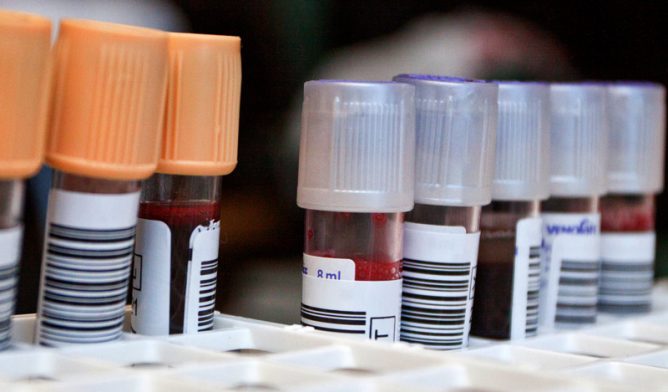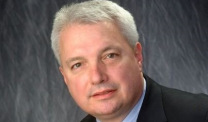Alternative Cancer Treatment Clinic Reopening in Bahamas
Treatment & DoctorsWritten by Tim Povtak | Edited By Walter Pacheco

Jerry Lampe and Ruth Phillips — two of America’s longest-living mesothelioma survivors — won’t feel so helpless now when a newly diagnosed patient asks for their secret to success.
The controversial Immune Augmentation Therapy (IAT) Clinic in Freeport, Bahamas, is set to reopen in October, giving mesothelioma patients a proven, alternative therapy option once again.
IAT operated outside of U.S. regulation from 1977 to 2016.
The name has been changed to Quantum Immunologics, but the philosophy surrounding cancer treatment is exactly the same, a throwback to when Lampe and Phillips were treated originally.
“Our basic treatment has not changed,” Dr. Eric Brown, new medical director, told Asbestos.com. “We know that mesothelioma can be treated here. It is treated here and was treated successfully at the clinic in the past.”
Two Long-Time Believers
Lampe, 78, was diagnosed with peritoneal mesothelioma 38 years ago. He was treated regularly for four years before leaving the clinic cancer-free. He lives today on a farm outside of Kansas City.
Phillips, 66, was diagnosed with peritoneal mesothelioma 19 years ago. She was treated regularly there for 15 years. She is living today an hour northwest of Atlanta.
Both are thriving, giving credit to the IAT Clinic and excited about the reopening.
“Obviously you can debate the effectiveness of treatment so long ago, but for some reason, I’m still alive and well,” Lampe said. “Unless it was divine intervention, or just blind luck, I don’t know. Something worked there. I would tell anyone diagnosed now with mesothelioma, at least take a look.”
Phillips said the clinic was a huge factor in her care over the years.
“It was a major portion of what saved me,” she said. “Now that they have reopened, I’m comfortable talking about it again. It’s kind of empowering to help other people by recommending it.”
Helping the Immune System Work
The theory behind the IAT clinic involves fighting cancer by revitalizing and restoring a patient’s individualized immune system.
The belief is the body’s own immune system — at its optimal level — is the best line of defense, giving a person the ability to destroy cancer cells or prevent them from multiplying.
There is no chemotherapy, radiation or surgery — proven, standard-of-care treatments — and none of the harsh side effects that come with them.
There are no oncologists on staff. Treatment involves fine-tuning the immune system to a level it can’t reach on its own.
This philosophy, once deemed as quackery, became the precursor to today’s more accepted immunotherapy that is being developed at leading cancer centers around the world.
Many established centers, moving toward adjuvant alternative medicine, have started offering variations of what IAT did for decades.
Individualized Treatment in the Bahamas
The therapy at IAT involved daily injections of a protein mixture that is adjusted regularly and made from the blood of healthy donors.
It is individualized to compliment a patient’s own immune system.
It can take up to eight weeks of daily treatment to achieve the perfect balance. Patients are sent home afterward with personalized serum to use on their own.
The clinic will again work outside of any strict governmental regulation or oversight from the U.S. medical community.
Most prominent oncologists in the U.S. won’t recommend it, but former patients such as Lampe and Phillips will praise it.
“They had some problems just before it closed, but it sounds like they have been straightened out,” Phillips said. “I’m still a believer in what they did for me and will do again. Until I went there, I never thought I’d live past 50. I’m here today because of what they did for me.”
The U.S. Food and Drug Administration once lobbied unsuccessfully to close IAT. The actual closure came after founder Dr. Lawrence Burton died and successor Dr. John Clement retired.
A changing philosophy, poor management, continued skepticism by the U.S. medical establishment, and the aging staff led to a quick, downward spiral.
Back to What Worked Years Ago
Brown, who once worked with Burton and Clement, is behind the reopening.
Lynn Austin, a nurse and administrator who spent almost 40 years at IAT under Burton and Clement, also has returned.
A former patient donated more than $250,000 to upgrade and modernize the facility where it will be housed, only a few blocks from before.
“I started here a long time ago, and I became a believer after what I was seeing,” Austin said. “I’d see a sick patient come in, and think, oh dear, I don’t know if we can help him. And quite often, I was pleasantly surprised at how well they did.”
The clinic will treat a wide variety of cancers, including more common ones than mesothelioma, a rare and aggressive cancer with no definitive cure.
Lampe and Phillips first came to the Bahamas after being diagnosed at prominent cancer centers in the U.S.
Both had their diagnosis reconfirmed at other U.S. facilities. Neither was given much hope for survival, leading to their first trip to Freeport, believing it was their only chance.
“We’re excited about what we can offer these patients now who often have no other options,” Brown said. “To see them come in, and then leave in remission, or cancer-free, that really triggers me. That’s why I’m doing this again.”







